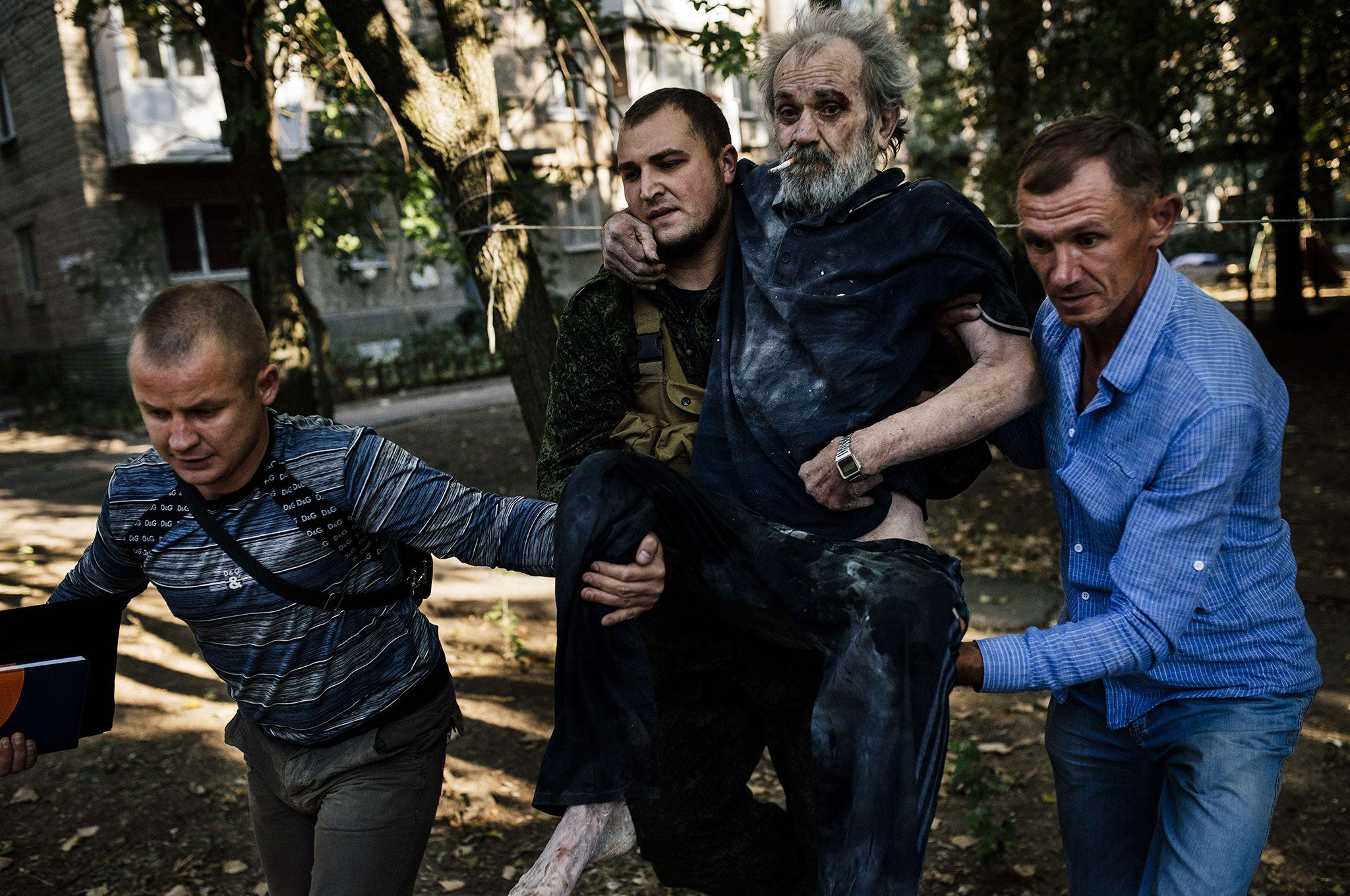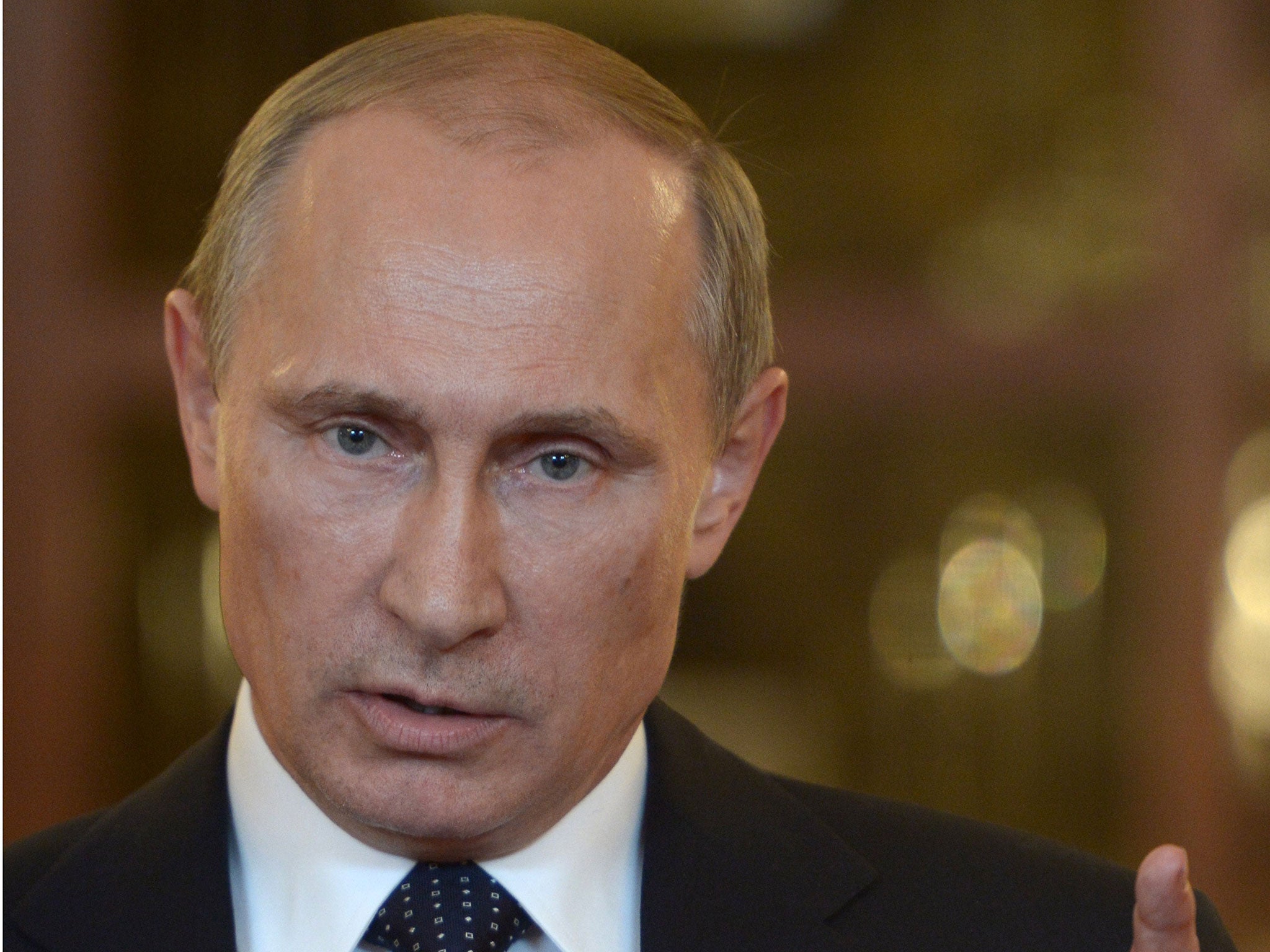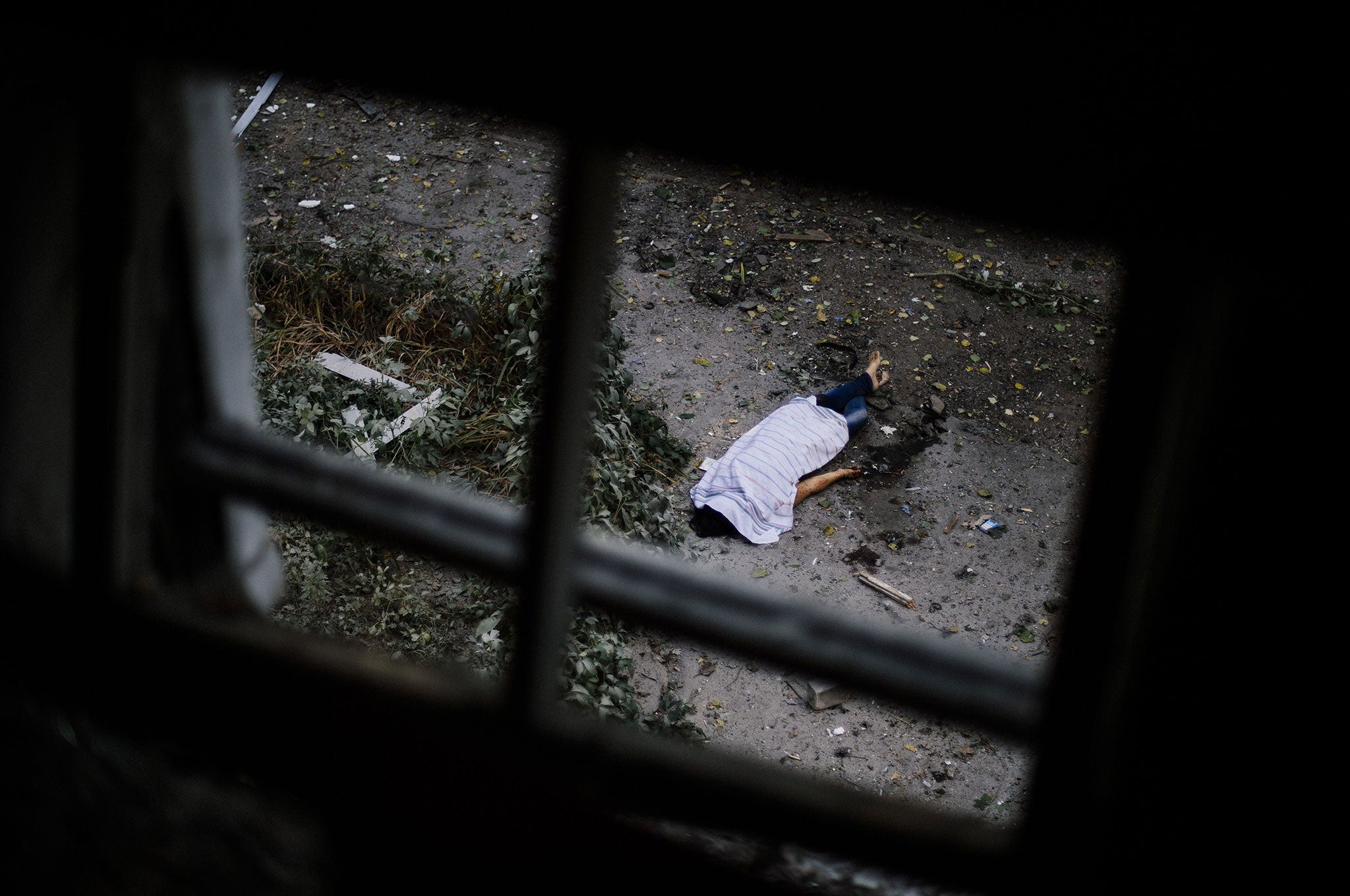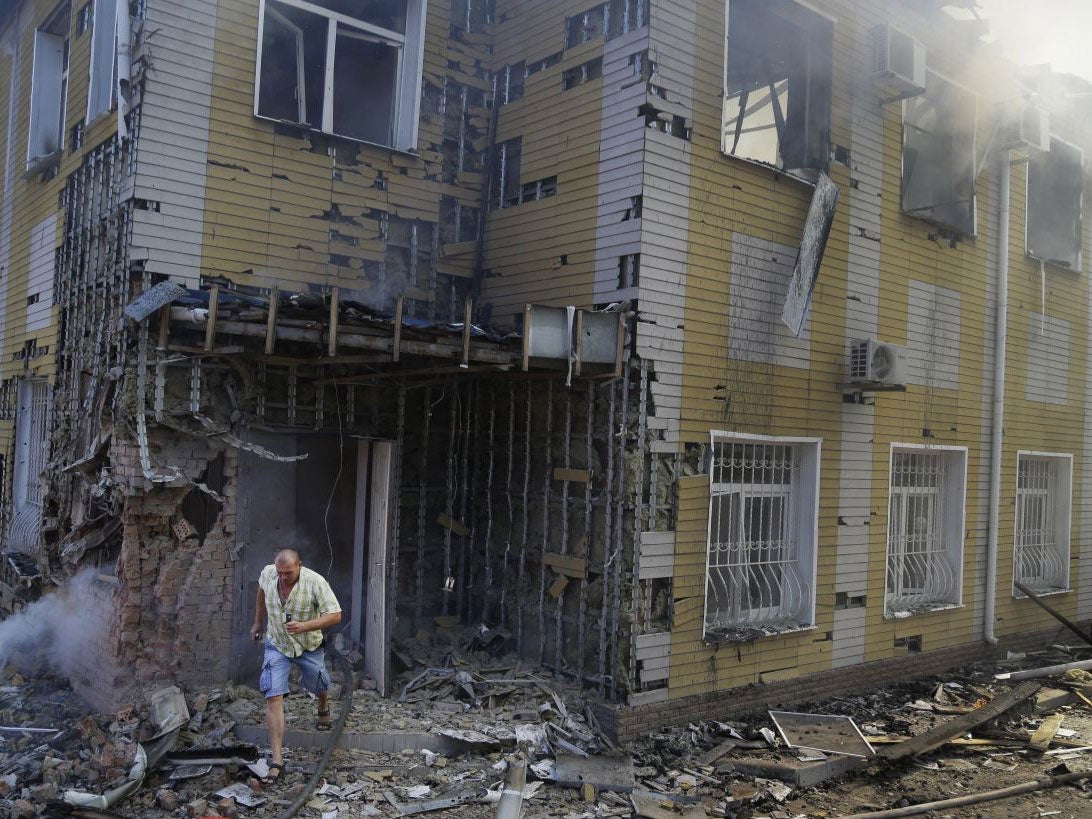Ukraine crisis: 'Don't mess with us – we're a leading nuclear power', warns Putin
The death toll has topped 2,500 amid UN accusations of atrocities

Your support helps us to tell the story
From reproductive rights to climate change to Big Tech, The Independent is on the ground when the story is developing. Whether it's investigating the financials of Elon Musk's pro-Trump PAC or producing our latest documentary, 'The A Word', which shines a light on the American women fighting for reproductive rights, we know how important it is to parse out the facts from the messaging.
At such a critical moment in US history, we need reporters on the ground. Your donation allows us to keep sending journalists to speak to both sides of the story.
The Independent is trusted by Americans across the entire political spectrum. And unlike many other quality news outlets, we choose not to lock Americans out of our reporting and analysis with paywalls. We believe quality journalism should be available to everyone, paid for by those who can afford it.
Your support makes all the difference.Vladimir Putin has said Russia is "ready to repel any aggression" after comparing Ukraine's military to the Nazi army.
Speaking to a youth camp outside Moscow on Friday, he said: "Russia is far from being involved in any large-scale conflicts.
"We don't want that and don't plan on it. But naturally, we should always be ready to repel any aggression towards Russia," he said, adding that it was "best not to mess with us [Russia]" and its nuclear-arsenal-backed armed forces.
"Thank God, I think no one is thinking of unleashing a large-scale conflict with Russia. I want to remind you that Russia is one of the leading nuclear powers."
His comments came as Nato released satellite images appearing to show Russian soldiers and tanks in a rebel-held area of eastern Ukraine.
The pictures were taken as confirmation of long-held suspicions by Western leaders that Russia is arming and directly working with separatists fighting the Ukrainian Government.
The President has frequently condemned Kiev's operation in eastern Ukraine, accusing it of "waging war against its own people".
He told the youth camp the battle against separatists in Donetsk and Luhansk was reminiscent of the Nazi's seige of Leningrad in the Second World War.
"Small villages and large cities surrounded by the Ukrainian army which is directly hitting residential areas with the aim of destroying the infrastructure," he said.
"It sadly reminds me the events of the Second World War, when German fascist occupants surrounded our cities."

An average 36 people are dying every day as the conflict continues to rage in eastern Ukraine, with both Government forces and rebels being accused of targeting civilians in a violation of international law.
The death toll has reached at least 2,593 people, including civilians killed in Government assaults on separatist-held areas, according to the United Nations.
A report issued by the Office of the High Commissioner for Human Rights (OHCHR) on Friday documented the deaths of people trapped in besieged cities and abuses including torture and abduction on both sides.
The UN High Commissioner for Human Rights, Navi Pillay, urged all parties to comply with the law.
“Deliberate targeting of civilians is a violation of international humanitarian law and more must be done to protect them,” she said.
“All those involved in the hostilities in the affected areas of the east must at all times comply with the principles of distinction, proportionality and precaution.

“This is particularly important in densely populated areas.
“There is an urgent need to end the fighting and violence in the eastern regions, before more civilians are harmed or forced to flee, or face intolerable hardships trapped inside the conflict zones.”
Intense fighting and shelling in densely-populated rebel strongholds has increased civilian casualties, the report said.
In the period from 16 July to 17 August, it found people trapped in urban areas or trying to flee the fighting using supposedly “safe” corridors established by the Government were being killed and wounded.
Others have been prevented by armed groups from leaving the cities of Luhansk and Donetsk as Government forces tightened blockades in efforts to re-take control.
More than half the population of both cities have already fled but not enough was done to evacuate them, according to the report.

Those most vulnerable were institutionalised children, older people and those with disabilities and the evacuation of many children to safety in other parts of the country was blocked by armed groups.
Most human rights abuses documented were committed by armed rebel groups who seized control of swathes of eastern Ukraine in April.
There were reports of abductions involving physical and psychological torture, and detainees being subjected to forced labour.
At least 468 people were believed to be detained by various armed groups in mid-August, although the current figure is not known.
There have also been reports of human rights violations, such as arbitrary detention, enforced disappearances and torture committed by the Ukrainian territorial and special battalions.
The OHCHR said “more control” should be exercised over volunteer soldiers, in particular instructing them in international humanitarian law.
The Government has arrested more than 1,000 people in eastern Ukraine because of what it calls “irrefutable evidence of their participation in terrorist activities” but according to the report, procedural rights have not always been observed and there are reports of ill-treatment during arrest or while in custody.
More than 1,500 cases of alleged offences committed by local officials and citizens in the east have already been investigated by Ukrainian authorities and more than 150 people have been prosecuted.
Three laws approved by the Government to significantly expand the powers of law enforcement bodies “appear to be in conflict with international human rights norms and standards”, the report said.
“Justice and accountability must replace impunity for major human rights violations that have occurred over the past four months,” the Ms Pillay said.
“And justice must be applied to all. It is essential that the Government takes firm action to prevent reprisals and all other forms of unlawful retribution.
“The application of the rule of law must be meticulous, and in full accord with international standards, if public confidence in state institutions is to be restored.”
Join our commenting forum
Join thought-provoking conversations, follow other Independent readers and see their replies
Comments